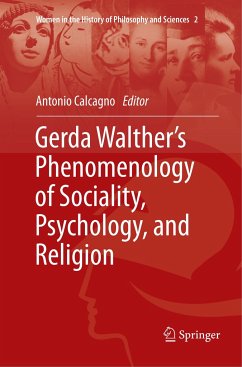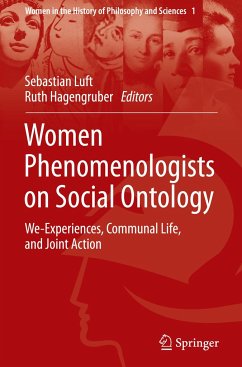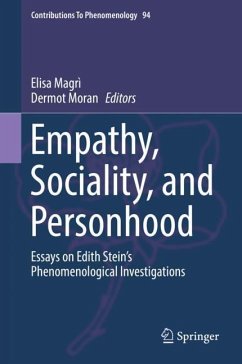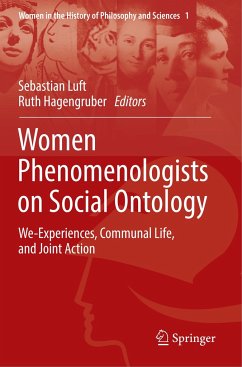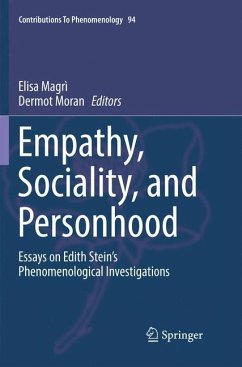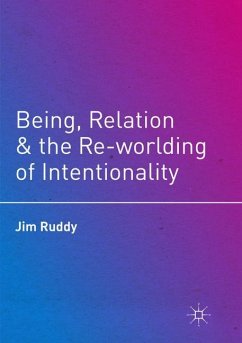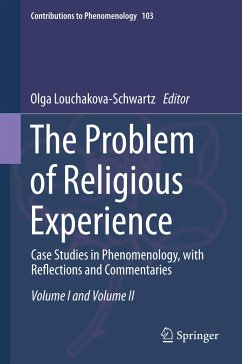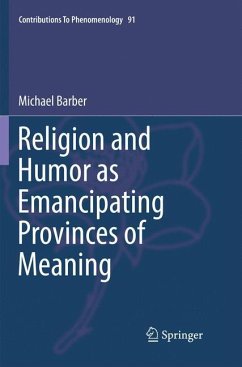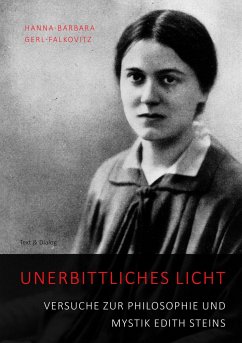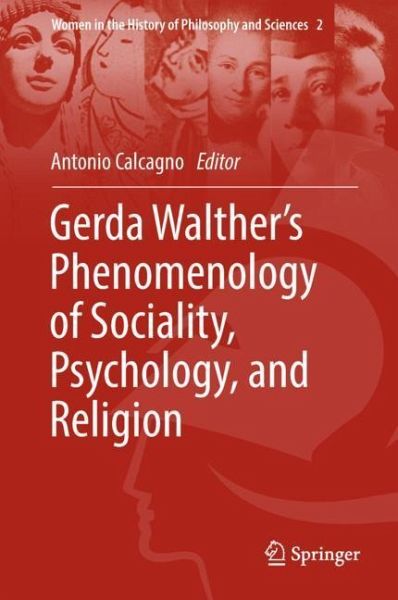
Gerda Walther's Phenomenology of Sociality, Psychology, and Religion

PAYBACK Punkte
49 °P sammeln!
This book explores the philosophical writings of Gerda Walther (1897-1977). It features essays thatrecover large parts of Walther's oeuvre in order to show her contribution to phenomenologyand philosophy. In addition, the volume contains an English translation of part of hermajor work on mysticism.The essays consider the interdisciplinary implications of Gerda Walther's ideas. A studentof Edmund Husserl, Edith Stein, and Alexander Pfänder, she wrotefoundational studies on the ego, community, mysticism and religion, and consciousness.Her discussions of empathy, identification, the ego and ego-...
This book explores the philosophical writings of Gerda Walther (1897-1977). It features essays that
recover large parts of Walther's oeuvre in order to show her contribution to phenomenology
and philosophy. In addition, the volume contains an English translation of part of her
major work on mysticism.
The essays consider the interdisciplinary implications of Gerda Walther's ideas. A student
of Edmund Husserl, Edith Stein, and Alexander Pfänder, she wrote
foundational studies on the ego, community, mysticism and religion, and consciousness.
Her discussions of empathy, identification, the ego and ego-consciousness,
alterity, God, mysticism, sensation, intentionality, sociality, politics, and woman are
relevant not only to phenomenology and philosophy but also to scholars of religion, women's
and gender studies, sociology, political science, and psychology.
Gerda Walther was one of the important figures of the early phenomenological
movement. However, as a woman, she could not habilitate at a German
university and was, therefore, denied a position. Her complete works have yet to be
published. This ground-breaking volume not only helps readers discover a vital voice but it
also demonstrates the significant contributions of women to early phenomenological thinking.
recover large parts of Walther's oeuvre in order to show her contribution to phenomenology
and philosophy. In addition, the volume contains an English translation of part of her
major work on mysticism.
The essays consider the interdisciplinary implications of Gerda Walther's ideas. A student
of Edmund Husserl, Edith Stein, and Alexander Pfänder, she wrote
foundational studies on the ego, community, mysticism and religion, and consciousness.
Her discussions of empathy, identification, the ego and ego-consciousness,
alterity, God, mysticism, sensation, intentionality, sociality, politics, and woman are
relevant not only to phenomenology and philosophy but also to scholars of religion, women's
and gender studies, sociology, political science, and psychology.
Gerda Walther was one of the important figures of the early phenomenological
movement. However, as a woman, she could not habilitate at a German
university and was, therefore, denied a position. Her complete works have yet to be
published. This ground-breaking volume not only helps readers discover a vital voice but it
also demonstrates the significant contributions of women to early phenomenological thinking.



